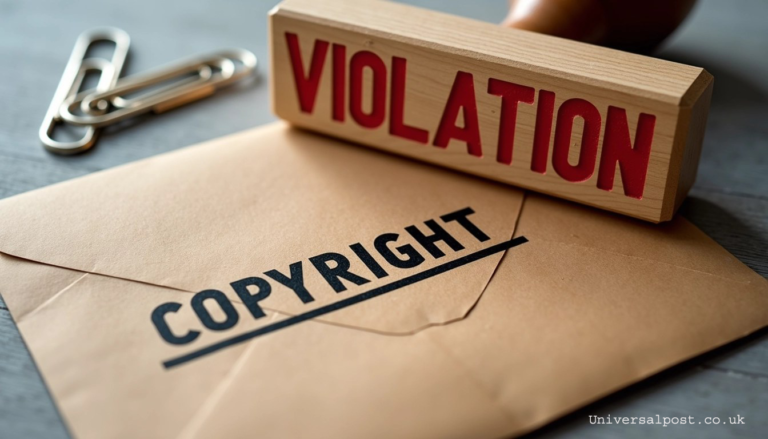Introduction
Running a small business comes with many challenges, and one significant concern is protecting your intellectual property from copyright infringement. Not only can copyright infringement harm your business’s reputation, but it can also result in costly legal battles. In this blog post, we’ll explore actionable steps to safeguard your small business from copyright violations.
Understand Copyright Basics
First and foremost, it’s crucial to understand what copyright is and what it protects. Copyright is a form of property that gives the begetter exclusive rights to use, distribute, and modify their original works. This includes literary works, music, art, and other creative content. By understanding the fundamentals of copyright law, you can better navigate the complexities of protecting your business’s intellectual assets.
Register Your Copyrights To avoid Infringement
While copyright protection is automatic upon the creation of an original work, registering your copyrights with the relevant authority, such as the U.S. Copyright Office, provides additional legal benefits. Registration not only serves as a public record but also allows you to seek statutory damages and attorney’s fees in case of infringement. Make it a practice to register your important works to enhance your protection.
Use Copyright Notices
Including a copyright notice on your materials serves as a deterrent to potential infringers. A copyright notice typically includes the © symbol, the year of publication, and the name of the copyright owner. For example: © 2025 Your Business Name. While a notice is not required for copyright protection, it can reinforce your rights and remind others that the work is protected.
Monitor and Enforce Your Rights
Vigilance is key to protecting your copyrights. Regularly monitor the internet and other relevant platforms for unauthorized use of your content. You can set up Google Alerts for specific keywords related to your business or use specialized copyright monitoring services. If you discover infringement, take prompt action by sending a cease-and-desist letter or consulting with an intellectual property attorney to discuss further legal options.
Educate Your Team
Ensure that your employees understand the importance of copyright protection and adhere to copyright laws. Provide training sessions on copyright basics, proper use of third-party materials, and the consequences of infringement. By fostering a culture of respect for intellectual property, you can minimize the risk of unintentional violations within your business.
Implement Licensing Agreements For Infringement
When using content created by others, always secure the necessary permissions through licensing agreements. These agreements specify how the content can be used, the duration of use, and any associated fees. Clear and well-drafted licensing agreements can prevent misunderstandings and potential legal disputes.
Keep Detailed Records
Maintain comprehensive records of your copyrights, including registration certificates, licensing agreements, and any correspondence related to your intellectual property. Organized documentation can streamline the process of proving ownership and defending your rights in case of infringement.
Stay Informed About Copyright Law
Copyright laws can vary by jurisdiction and are subject to change. Stay informed about the latest developments in copyright legislation and seek legal advice when needed. Subscribe to industry newsletters, attend relevant seminars, and consult with intellectual property attorneys to ensure you are up-to-date with your knowledge.
Conclusion
Protecting your small business from copyright infringement requires a proactive and informed approach. By understanding copyright basics, registering your works, monitoring for unauthorized use, and educating your team, you can safeguard your intellectual property and avoid costly legal battles.
